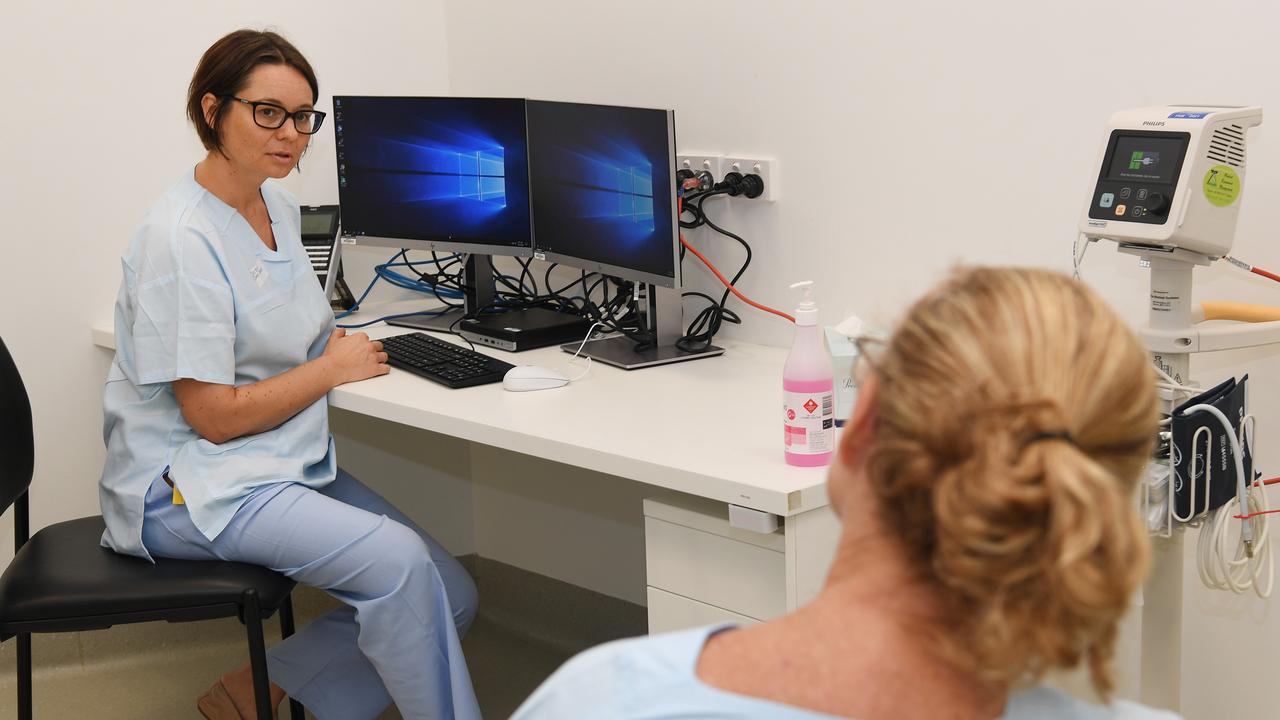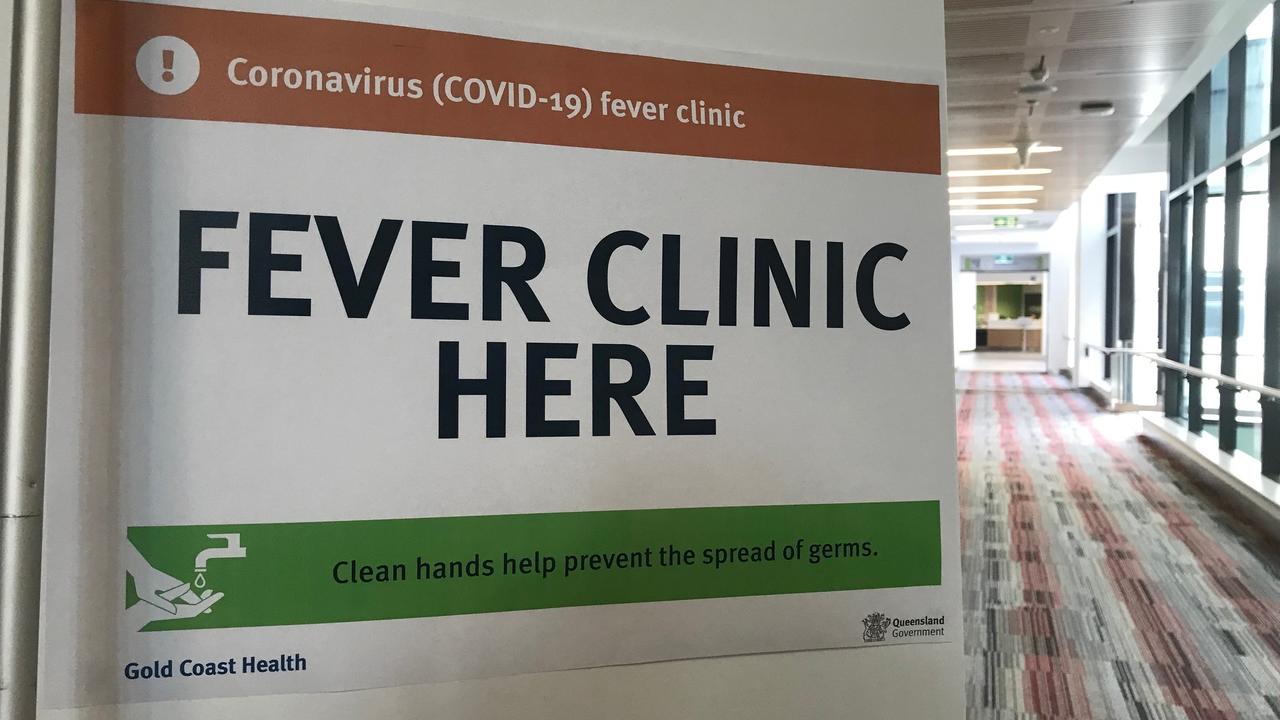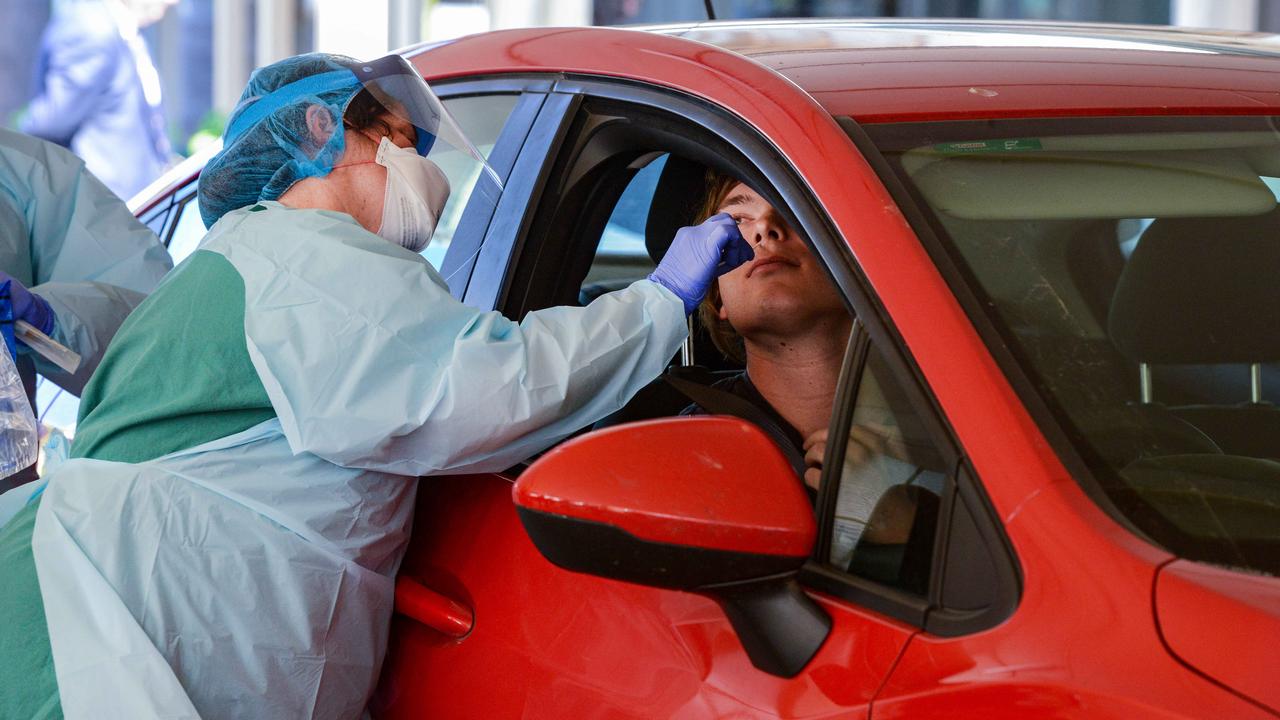What to do if you get sick and need to get tested for coronavirus
The symptoms of coronavirus are similar to other colds and flus, so what should you do if you feel unwell? This is how and when you should be tested.
How and when you should be tested for coronavirus is causing confusion.
Chief Medical Officer Brendan Murphy said people who were not sick should not get tested for coronavirus because there was “no value”.
“You may not show the virus until you’re symptomatic,” he said.
He said Australia was following the international approach of only testing people who had respiratory symptoms and had travelled recently or had been in contact with someone who had coronavirus.
WHAT IS THE CRITERIA TO BE TESTED FOR COVID-19?
Your doctor will tell you if you should be tested. They will arrange for the test based on the below criteria.
• You have returned from overseas in the past 14 days and you develop respiratory illness with or without fever
• You have been in close contact with a confirmed COVID-19 case in the past 14 days and you develop respiratory illness with or without fever
• You have severe community-acquired pneumonia and there is no clear cause
• You are a healthcare worker who works directly with patients and you have a respiratory illness and a fever
WHAT ARE THE SYMPTOMS?
The symptoms of COVID-19 are similar to other colds and flus. The Health department states that while coronavirus is of concern, “it is important to remember that most people displaying these symptoms are likely suffering with a cold or other respiratory illness – not coronavirus”.
Symptoms: Fever, sore throat, cough, fatigue, difficulty breathing. Experts have said a runny nose is not a symptom of the coronavirus.
In extreme cases the virus can cause organ failure. However, about 80 per cent of patients only get a mild to moderate form of the disease.
Those with higher risk for severe sickness are people aged over 60 and those with underlying conditions such as hypertension, diabetes, cardiovascular disease, chronic respiratory disease and cancer.
The virus can spread through close contact with an infectious person, contact with droplets from an infected person’s cough or sneeze, and touching objects or surfaces that have infected droplets and then touching your mouth or face.
CALL THE HOTLINE
The free-call coronavirus hotline 1800 022 222 will advise people on the best course of action depending on their symptoms and risks.
Medical staff will direct people to the nearest hospital or respiratory clinic, or advise them to stay home and self-monitor, or contact their GP.
People who are not severely ill with COVID-19 will be directed to GPs or a network of well-resourced GP-led respiratory clinics.
Information about symptoms and other services are also available on the Federal Government’s Health Direct page.
RELATED: Follow the latest coronavirus updates

FEVER CLINICS
About 100 pop-up respiratory clinics will also be funded to make it easier for people to get tested if they think they have the virus.
These clinics will gradually be opened across Australia, some general practices may also choose to become dedicated respiratory clinics.
GPs will also be supported to introduce a drive-through service or a separate entrance to their practices.
Primary Health Networks (PHNs) will work with the Australian Medical Association and the Royal Australian College of General Practitioners to identify medical practices capable of managing the appropriate infection control arrangements, and are willing to operate the clinics.
RELATED: Australia’s first drive-through virus clinic opens in Adelaide

STATE BASED SERVICES
Some states also have their own services. For example Victoria has established screening clinics at five Melbourne hospitals. In NSW, GPs and hospital emergency departments are able to order testing but people are being warned to call beforehand to let doctors know they may have the virus.
TELEHEALTH
It’s better for those sick with COVID-19 and certain vulnerable people not to be out in the community, so the Government is making it easier for them to get health treatment at home.
From Friday, March 13, people who are sick and in isolation or who are vulnerable patients can use Medicare-funded telehealth services.
People who are in isolation or quarantine for the coronavirus will be able to see doctors and other health providers via telehealth, to ensure that they can continue to receive medical care while they are in isolation.
Patients who do not have COVID-19, but are at higher risk if they are exposed to the virus, will be able to see their usual GP, specialist or nurse from home via telehealth
These vulnerable patients who will be temporarily allowed to access remote health care include all people aged over 70, people with chronic illness, people whose immune systems are compromised, Aboriginal and Torres Strait Islander people aged over 50, pregnant women and new parents and babies.
A new Medicare item will be created so they can get bulk-billed treatment via video conferencing or on the phone.
If a person is interested in accessing telehealth services, they need to contact their doctor or other healthcare provider to book a service, and work out which technology will be used by the doctor and the patient. This could include widely available video calling apps like Zoom, Skype, FaceTime and others.
Doctors and other health care providers who normally provide Medicare services, but are in isolation or quarantine themselves, will also be able to continue seeing their regular patients via telehealth while they are in quarantine.
For more information, click here.

PRESCRIPTIONS
The Morrison Government is currently working with pharmacies to establish which are able to fill prescriptions online, and to work out safe arrangements and costs for home delivery.
Some pharmacies already provide home medicines services which enable patients to have their PBS prescriptions filled online or remotely, and have the medicines delivered to their home. Patients can check with their pharmacy about whether these services are already available, and more information will be provided on the Health Department’s website over time about which pharmacies are able to support online prescriptions and home delivery.
Continue the conversation @charischang2 | charis.chang@news.com.au




